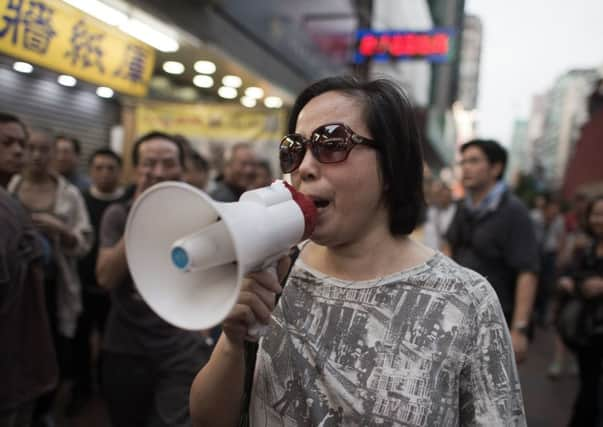Long road ahead for women's rights in China as abuse remains taboo


Their 21-year-old daughter fell into a coma after suffering a serious head injury and her partner Liu Fenghe, 24, had spent 200,000 yuan – around £21,600 – on medical bills and vowed he would take care of her for life.
But now Fenghe is being investigated by police in Liaoning province after Lin accused him of causing the head injury which nearly killed her.
Advertisement
Hide AdAdvertisement
Hide AdJust yesterday her father went to the police after she revealed Liu had beaten her because she burned some bread in the bakery business they ran – and that it was not the first time he had hit her.
The story is headline news in China where for centuries “family violence” has been considered a private matter. However, figures from the All-China Women’s Federation show a third of Chinese families have experience of domestic violence, that 90 per cent of reported cases involve the abuse of women and children and one in four women suffer violence in their marriage.
Earlier this month, after decades of campaigning by civil society organisations, the first ever anti-domestic violence law was introduced.
Despite such progress, there are growing worries about women’s rights in China. Chen Tingting, the Asia Foundation’s programme officer for women’s empowerment in China, says the big challenge will be implementing the law.
“While the new law marks a turning point in addressing domestic violence in China there’s a long journey ahead.”
Dr Sophia Woodman, an expert in human rights and contemporary China at Edinburgh University, agrees. “It’s great they have passed this law but implementation depends on having the people to make it work; that space is given to those who are advocates for women and provide the legal services which they need.
“And the space for independent organisations to work for women, or to challenge discrimination is limited and becoming more so. The signs are very worrying, there have been a lot of forced closures of that type of organisation.”
She points to the shutting this week of the Beijing Zhongze Women’s Legal Counselling and Service Centre, whose founder, lawyer Guo Jianmei, wasrecently hailed by the state as China’s “patron of the weak”.
Advertisement
Hide AdAdvertisement
Hide AdThe non-governmental organisation she established 20 years ago offered support to thousands of disenfranchised Chinese women. But the veteran women’s rights activisthas said little publicly about it, just citing “pressure”. Gender equality has been promoted, in theory, since the Communists came to power in 1949 – especially in education and ending medieval practices such as foot-binding and forced marriage. But campaigners say the reality is very different.
It’s been 21 years since Beijing hosted the United Nation’s World Conference on Women and while China may have one of the largest female workforces in the world, high levels of female education and more than half of the world’s self-made female billionaires, there is an increasing gender pay gap and workplace discrimination and sexual harassment are rife.
Dr Woodman adds: “Historically it’s been the case that the state’s commitment to gender equality in the constitution and official documents has given some space for gender related advocacy but in recent years that has been diminishing. And while there has always been a high level of women in the job market, there is still a lot of discrimination. For instance jobs can be advertised as solely for men.
“Also the change to the one-child policy – which has yet to be put into effect – has consequences for women. While it should hopefully end the worst practices, there are those saying ‘now we have to sacrifice for the nation by having two children’.”
And raising gender equality issues can be dangerous. Last year, on the eve of International Women’s Day, five feminist activists were arrested.
The five had planned to protest against the sexual harassment of women on public transport by handing out stickers. Their detention sent shockwaves worldwide and although released from jail after 37 days, they are all still officially being investigated, are under surveillance and are only free on bail.